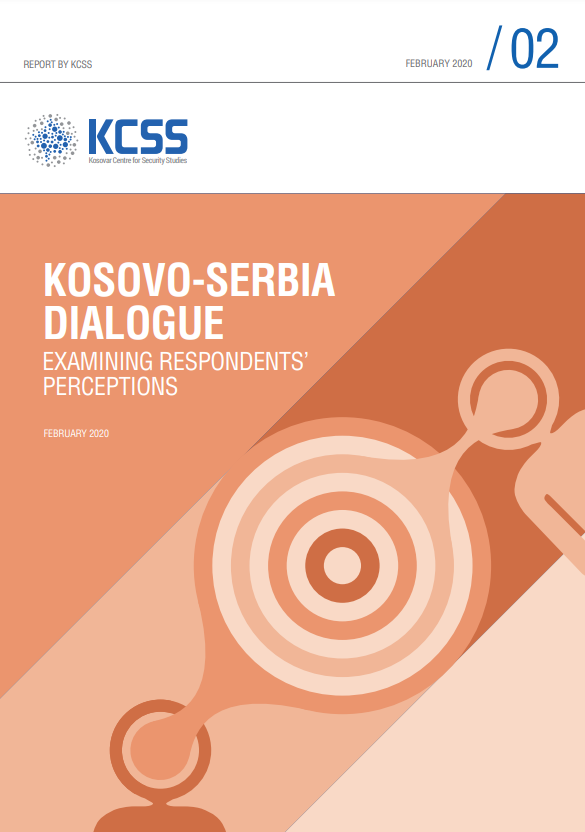14/02/2020

Kosovar Centre for Security Studies (KCSS)
National Endowment for Democracy (NED)
Plator Avdiu
This report provides a comprehensive and detailed data interpretation concerning perception of the public opinion based on a pre-defined set of questions on the issue at hand. In this regard, this report presents the 2019’ Kosovo Security Barometer respondents’ perception towards partition of Kosovo and territorial autonomy, including Association of Serb Municipalities which are perceived as national security threats to Kosovo by majority of respondents.
In the context of Kosovo-Serbia dialogue, the report addresses public perception on Kosovo’s customs tariffs towards products imported from Serbia and Bosnia Herzegovina and whether tariffs have weakened relations of Kosovo with its international partners. With regard to Kosovo’s foreign policy, the report reflects attitudes of respondents on the influence of foreign countries towards Kosovo.
Apart from general interpretation of data survey on these relevant topics, the report offers cross-tabulated data analysis based on regions, rural/urban areas, gender balance and ethnic composition of respondents.
Given that the Kosovo Security Barometer was conducted on mid-October 2019; therefore, it does not reflect some of the developments that occurred from November 2019 to January 2020 in Kosovo.
Key findings of the report are listed below:
-Corruption in Kosovo is perceived as the highest risk towards national security of the state. A large majority of respondents or 91.41 percent of them perceive that corruption is the biggest internal risks in Kosovo.
- Unemployment (90.98 percent) is ranked at the second place and organised crime (89.31 percent) ranked at the third place respectively as risks to Kosovo’s national security.
-It is worth mentioning that most topical issues in the framework of Kosovo-Serbia dialogue facilitated by the European Union, more precisely partition of Kosovo or land swap between Kosovo and Serbia (78.48 percent) and territorial autonomy for Kosovo/Association of Serb Municipalities (64.61 percent) are highly perceived as national security risks by respondents.
-As regards the Kosovo-Serbia dialogue, majority of citizens are in favour of restarting the dialogue. Almost 50 percent of respondents stated that the dialogue should be continued.
This report is published in the framework of the Kosovo Security Barometer Programe. Perceptions presented in this report are a summary of information gathered from respondents and it solely demonstrates how people perceive institutions. It is no way a conclusive assessment on the quality of the work of institutions subject to this study. It shall serve as an instrument to them toward addressing potential shortcomings, but also an indicator of the effectiveness of their communication with the people.
The views presented in this report are perceptions of the respondents and do not necessarily represent the views of Kosovar Centre for Security Studies. Opinions expressed in this report do not represent the views of the National Endowment for Democracy (NED).